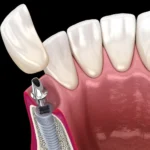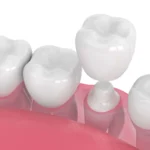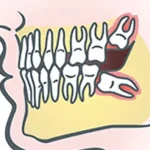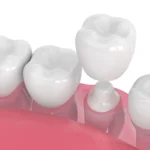Are you one of those people whose heart races at the mere thought of a dental appointment? Does the sound of that dreaded drill send chills down your spine? If so, you’re not alone. Dental anxiety is a common fear that affects countless individuals, preventing them from seeking necessary oral care and potentially compromising their overall health. But fear not! There’s a revolutionary solution that can help alleviate your dental anxieties and transform your experience in the dentist’s chair. It’s called sedation dentistry, and it’s here to rescue you from those nail-biting moments. In this blog post, we’ll delve into the world of sedation dentistry, exploring its benefits, risks, and real-life success stories. So sit back (or lie back) as we embark on this journey towards overcoming dental anxiety with sedation dentistry!
Understanding Dental Anxiety and Its Impact on Oral Health
Picture this: you’re sitting in the dental waiting room, palms sweating, heart pounding, and a knot forming in your stomach. The fear of the unknown fills your mind as you anticipate the upcoming dental procedure. This is what many people with dental anxiety experience on a regular basis.
Dental anxiety is more than just feeling nervous about visiting the dentist; it can have a significant impact on oral health. When individuals are too afraid to seek necessary dental care, they may neglect routine check-ups and cleanings, allowing potential problems to go undetected and worsen over time.
The consequences of untreated oral health issues can be far-reaching. Cavities left untreated can progress into painful abscesses or even tooth loss. Gum disease, if not addressed promptly, can lead to serious infections and bone loss.
Moreover, poor oral health has been linked to various systemic conditions such as cardiovascular disease, diabetes complications, respiratory problems, and even adverse pregnancy outcomes.
It’s clear that dental anxiety isn’t just an inconvenience; it poses real risks to both oral health and overall well-being. That’s why finding effective solutions for managing this fear is crucial – enter sedation dentistry!
What is Sedation Dentistry?
Sedation dentistry, also known as sleep dentistry or relaxation dentistry, is a revolutionary approach to treating dental anxiety. It involves the use of medication to help patients relax and feel comfortable during dental procedures. This can be particularly beneficial for individuals who experience intense fear or anxiety when visiting the dentist.
One of the main reasons why sedation dentistry has gained popularity is because it allows patients to undergo necessary dental treatments without experiencing excessive stress or discomfort. With sedation, patients are in a relaxed state but still conscious enough to respond to verbal cues from the dentist.
There are different levels of sedation that can be used in dentistry depending on the individual’s needs and preferences. These include minimal sedation (where you are awake but feeling calm), moderate sedation (commonly referred to as “conscious sedation”), deep sedation (you may drift in and out of consciousness), and general anesthesia (you are completely unconscious).
The medications used for sedative purposes vary, ranging from oral medications such as pills or liquid solutions, nitrous oxide gas administered through a mask, intravenous drugs delivered directly into your bloodstream, or even a combination of these methods.
It’s important to note that while there are numerous benefits associated with this approach, there are also risks involved with any medical procedure. However, trained professionals carefully monitor patients throughout their treatment process to ensure their safety.
With sedation dentistry techniques becoming more advanced and widely available, an increasing number of complex dental procedures can now be performed comfortably under its influence. From routine cleanings and fillings to root canal therapy and even extractions – all these procedures can be completed smoothly using various levels of dental sedatives.
Types of Sedation Used in Dentistry
When it comes to sedation dentistry, there are several types of sedatives that can be used to help patients relax during dental procedures. Each type has its own benefits and considerations, depending on the level of anxiety or fear experienced by the patient.
One common type of sedation is nitrous oxide, also known as laughing gas. This gas is administered through a mask placed over the nose and helps create a sense of relaxation and euphoria for patients. It is fast-acting and wears off quickly once the procedure is complete.
Another option is oral conscious sedation, which involves taking a prescribed medication prior to the appointment. The medication helps induce a state of relaxation and drowsiness, making it easier for patients to undergo their dental treatment with minimal anxiety.
For more complex cases or extreme dental phobia, intravenous (IV) sedation may be recommended. This form of sedative delivery allows for precise control over the level of sedation throughout the procedure. It provides deep relaxation while still allowing patients to remain conscious and able to respond to commands from their dentist.
In some cases, general anesthesia may be necessary for extensive dental work or surgical procedures. Under general anesthesia, patients are completely unconscious during the procedure and unaware of any pain or discomfort.
The choice of sedation method will depend on various factors such as individual patient needs, medical history, complexity of treatment required, and personal preferences discussed with your dentist before treatment begins.
Remember that only qualified dentists who have received specialized training in administering different forms of sedatives should perform these procedures.
Benefits and Risks of Sedation Dentistry
Sedation dentistry offers numerous benefits for patients who experience dental anxiety or have a low pain threshold. One major advantage is that it allows individuals to receive the necessary dental treatments they may otherwise avoid due to fear or discomfort. With sedation, patients can feel relaxed and at ease throughout their appointment, making it easier for the dentist to perform procedures effectively.
Another benefit of sedation dentistry is that it can help save time. Patients who are anxious tend to fidget or have difficulty sitting still during dental procedures, making it challenging for dentists to work efficiently. By using sedatives, dentists can complete multiple procedures in one visit since patients will be more cooperative and less likely to interrupt the process.
Moreover, sedation dentistry enables individuals with sensitive gag reflexes or those who struggle with numbing medication effectiveness to undergo treatment without any issues. The use of certain sedatives helps relax muscles and reduce sensitivity, making the entire experience much more comfortable for such patients.
However, like any medical procedure involving anesthesia or medications, there are potential risks associated with sedation dentistry. While rare, complications may include allergic reactions or adverse side effects from the medication used during the procedure. Additionally, some individuals may experience drowsiness or temporary memory loss after being under sedation.
It’s crucial for both patients and practitioners to carefully consider these risks before opting for sedation dentistry. Dentists should thoroughly evaluate each patient’s medical history and provide detailed information about potential side effects beforehand. Open communication between patient and dentist is key in ensuring a safe and successful outcome.
In conclusion (not concluding), while there are many benefits to using sedation in dental procedures such as reducing anxiety levels and increasing comfort during treatment; however taking into account all possible risks including allergic reactions should not be overlooked when considering this option
Common Procedures That Can Be Performed with Sedation
One of the major advantages of sedation dentistry is that it allows for a wide range of dental procedures to be performed comfortably and anxiety-free. From routine cleanings to more complex treatments, patients can now undergo these procedures with ease.
For starters, routine dental cleanings are one procedure that can be done using sedation. Many people experience fear or anxiety when going to the dentist even for simple cleanings. With sedation dentistry, patients can relax and have their teeth cleaned without any discomfort or stress.
Another common procedure that benefits from sedation is tooth extractions. Whether it’s a wisdom tooth removal or a regular extraction, sedation helps patients remain calm and relaxed throughout the process. This makes it easier for both the patient and dentist to complete the procedure effectively.
Similarly, root canal treatment is another dental procedure where sedation plays a vital role in alleviating anxiety. Root canals are known to cause significant discomfort due to the sensitivity involved during treatment. Sedation ensures that patients feel at ease while receiving this necessary dental care.
Moreover, cosmetic procedures like porcelain veneers or dental implants also benefit from sedation dentistry. These procedures often require multiple visits and may involve longer appointment times. Sedation helps patients stay comfortable throughout each visit so they can achieve the smile they desire without added stress.
There are numerous dental procedures that can be performed with the help of sedatives in order to alleviate anxiety and provide optimal comfort for patients seeking oral health treatments. Whether it’s a routine cleaning or a complex restoration, finding a qualified dentist who offers sedation options opens up possibilities for individuals who would otherwise avoid essential dental care due to fear or apprehension!
Finding a Qualified Sedation Dentist
When it comes to finding a qualified sedation dentist, it’s important to do your research and find someone who is experienced in providing this specialized treatment. The first step is to ask for recommendations from friends, family, or your regular dentist. They may have had positive experiences with a sedation dentist and can provide valuable insights.
Another option is to search online for sedation dentists in your area. Look for dentists who specifically mention their expertise in sedation dentistry and make sure they are licensed and accredited by relevant dental organizations.
Once you have identified potential dentists, take the time to read reviews and testimonials from their patients. This will give you an idea of their reputation and the quality of care they provide.
It’s also important to schedule a consultation with any potential sedation dentist before committing to treatment. This will allow you to ask questions about their experience, discuss your specific needs and concerns, and determine if they are the right fit for you.
During the consultation, pay attention to how comfortable you feel with the dentist and their staff. Trusting your instincts is crucial when choosing a healthcare provider.
Finding a qualified sedation dentist may take some time and effort but investing in proper research will ensure that you receive safe and effective treatment for your dental anxiety
Overcoming Dental Anxiety with Sedation Dentistry: Real Life Success Stories
For many individuals, the mere thought of visiting the dentist can send shivers down their spine. Dental anxiety is a common condition that affects people of all ages and can have a significant impact on their oral health. Fortunately, sedation dentistry has emerged as an effective solution for those who struggle with dental phobia.
One success story comes from Sarah, who had always been terrified of going to the dentist due to a traumatic experience in her childhood. However, after learning about sedation dentistry and its ability to alleviate anxiety, she decided to give it a try. The moment she walked into the office, Sarah was greeted by caring staff members who understood her fears and reassured her throughout the entire process.
Another success story involves Mark, who had avoided dental care for years out of fear and embarrassment over his dental issues. With sedation dentistry, he was able to undergo multiple procedures in just one visit without any discomfort or anxiety.
These real-life stories showcase how sedation dentistry has transformed lives by providing a comfortable and stress-free environment for patients like Sarah and Mark. It allows individuals with dental anxiety to receive necessary treatments without fear or pain.
If you’re someone struggling with dental phobia or extreme anxiety when it comes to visiting the dentist, consider exploring sedation dentistry as an option. Consult with a qualified sedation dentist who can discuss your concerns and develop a personalized treatment plan that meets your needs.
Remember that overcoming dental anxiety is possible through innovative approaches like sedation dentistry. So don’t let fear hold you back from achieving optimal oral health – take control today!
Conclusion
Sedation dentistry has truly revolutionized the way dental anxiety is treated, providing a solution for individuals who have long avoided receiving dental care due to fear and anxiety. By understanding the impact of dental anxiety on oral health and exploring the benefits and risks of sedation dentistry, patients can make informed decisions about their treatment options.
With various types of sedation available, ranging from mild relaxation to deep sleep, patients can undergo common dental procedures without experiencing stress or discomfort. From routine cleanings and fillings to more complex treatments like root canals or tooth extractions, sedation dentistry offers a safe and effective way to overcome fears associated with these procedures.
When considering sedation dentistry, it’s essential to find a qualified dentist who has undergone specialized training in administering anesthesia safely. Taking the time to research potential practitioners and asking for referrals from trusted sources will ensure that you receive high-quality care throughout your treatment journey.
Real-life success stories highlight the transformative power of sedation dentistry in helping individuals conquer their dental anxieties. By sharing these experiences, we hope to inspire others who may be hesitant about seeking necessary dental care due to fear or anxiety. Sedation dentistry has enabled countless patients worldwide to achieve optimal oral health while enjoying a comfortable and relaxed experience at the dentist’s office.
If you’ve been avoiding important dental treatments because of fear or anxiety, know that there is help available through sedation dentistry. Don’t let your worries hold you back from achieving a healthy smile – take control of your oral health by exploring this innovative approach today! Remember; a visit to the dentist doesn’t have to be something you dread anymore – thanks to sedation dentistry!












